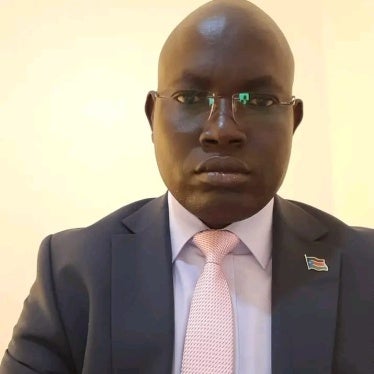(New York) - Six individuals indicted for war crimes remain at large in Foca, and many alleged architects of "ethnic cleansing" still have positions of authority in the Bosnian town, a new Human Rights Watch report charges today. Not a single non-Serb has returned to Foca since the war ended, although the population included more than 20,000 non-Serbs before the war culture of impunity has poisoned the peace process in Foca," said Holly Cartner, executive director of the Europe and Central Asia division of Human Rights Watch. "The architects of Foca's 'ethnic cleansing' have been promoted, rather than prosecuted."
Still under the influence of the indicted wartime Bosnian Serb leader, Radovan Karadzic, Foca lives in a cloud of fear and intimidation. Even Bosnian Serb residents face harassment and threats if they try to leave Foca for their prewar homes elsewhere. Journalists visiting Foca have been harassed and kicked out of town. International organizations in Foca have received threats and been the targets of violence.
Foca lies in the territory controlled by French troops of the NATO-led Stabilization Force (SFOR). Until the June 15 arrest of Milorad Krnojelac, those troops had failed to arrest any of the indicted suspects living in Foca. In its report, Human Rights Watch urges the arrest of other indicted war criminals in Foca, and the investigation of individuals who were allegedly involved in wartime abuses.
Human Rights Watch also calls upon international donor governments and institutions to withhold reconstruction aid from Foca until those allegedly responsible for abuses are brought to justice. Donors and investors in the Foca area include the European Union, the Italian government, the World Bank, the European Bank for Reconstruction and Development, and the United Nations High Commissioner for Refugees.
"Donors have not been careful enough to ensure that war criminals and other enemies of peace are not benefiting politically and financially from their largesse," said Cartner. "Under current conditions in Foca, it's impossible for donors to vet and monitor their aid projects properly. Investigations and arrests have to come first."
The Human Rights Watch report, "'A Closed, Dark Place': Past and Present Human Rights Abuses in Foca ," traces the history of the town since the Serb takeover in April 1992, when its population stood at about 40,000. At that time, local authorities established a "Crisis Committee" to coordinate the Serb military and police in their campaign of "ethnic cleansing": detaining, arresting, expelling, raping, torturing, and murdering the non-Serb population. Foca became known as the site of "rape camps" where non-Serb women were detained and abused.
According to Human Rights Watch, three leaders of the Foca Crisis Committee currently hold government posts: Petar "Petko" Cancar is Minister of Justice of the Republika Srpska, Velibor Ostojic is head of the Bosnian Parliament's Commission for Human Rights, and Vojislav Maksimovic is a member of the Republika Srpska National Assembly. Milorad Krnojelac, before French troops arrested him on June 15, 1998, was living uninhibited in Foca, working as a teacher in a primary school. The sealed indictment of the International Criminal Tribunal for the Former Yugoslavia in The Hague alleges that Krnojelac managed one of Foca's most infamous detention centers, known as "KP Dom."
"Until the international community acts to bring these people to justice, there can be no real peace in Bosnia," said Cartner. "It's high time to arrest the remaining indicted war crimes suspects in Foca -- and give some serious thought to who else should be on the list."






